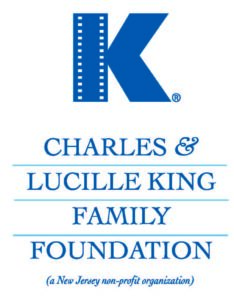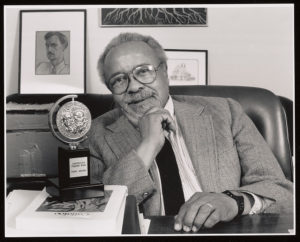The Resident Artist must:
- Identify as BIPOC artist or an artist that is part of the global majority
- Identify as a mid-career artist. We know career stages are hard to pinpoint. Please use your best judgement based on the opportunity to decide if you identify as mid-career. If you would like a definition for some (but not definitive) guidance, you can use this from the 2020 Next Stage Report: Mid-Career: is consistently paid for directing and/or choreographic work. Employed more frequently by institutional not-for-profits and early career commercial producers. Supplemental income may include teaching positions, artistic leadership, and commercial associate level work. Additionally, we welcome applicants who have come later to the craft of directing or choreographing. To be considered, the applicant must have been working as a professional director or choreographer for at least 5 years. If you have questions about this eligibility criteria, contact Dani Barlow (contact information below).
- Be interested in exploring artistic direction at a regional theater as a potential career path.
- Be interested in directing or choreographing a production at the host theatre within the next three years.
- Have an enthusiasm for work at The Black Rep, interest in working with Ron Himes and the artistic staff, and an interest in working in the St. Louis community.
If you have questions about your application, please contact SDCF Director Dani Barlow at dbarlow@sdcfoundation.org.
Background:
This New Futures Residency is named for Lloyd Richards, whose career blazed a trail through our industry. Starting as an actor in 1940s New York, in 1956, Sidney Poitier arranged an interview for Richards with producers to direct Lorraine Hansberry’s new play A Raisin in the Sun. Richards’ work on the production garnered his first of five Tony nominations for Best Direction of a Play; he later won the award in 1987 for his work on Fences. Richards led the National Playwrights Conference (NPC) at the Eugene O’Neill Theatre Center for more than 30 years, developing work with hundreds of playwrights. From 1979-91, he was Artistic Director of Yale Repertory Theatre and Dean of the Yale School of Drama.
Richards was the first Black director to be nominated for and then to win the Tony Award for Best Direction. Aside from his first nomination for Raisin in the Sun, the other four honored his work directing August Wilson’s plays on Broadway. Richards’ collaborations with Hansberry and Wilson sustained his deepest beliefs about our industry: “We must each bring the wonder of our particular cultural heritage to the context of the here and the now. That is American Theatre—theatre which reaches into the ethnic memory of each of us and is informed by its wisdom, form, and artistry, and brings that to the context ‘now,’ where we all dwell, and informs the now, which provokes and enriches us all.”
In addition to his artistic accolades, Richards was a staunch advocate for artists’ rights as workers. A founding member of SDC, Richards served as president from 1970 to 1980. He received the National Medal of Arts in 1993; he died in 2006.
For Lloyd Richards’ full biography, click here.
The 2023 Lloyd Richards New Futures Residency is made possible with support from The Diana King Memorial Fund presented by The Charles and Lucille King Family Foundation, the Miranda Family Fund, Jujamcyn Theaters, Concord Theatricals, and support through the SDCF fellowship funds named for Shepard and Mildred Traube and Sir John Gielgud, and many generous individuals.
About Lloyd Richards:
This New Futures Residency is named for Lloyd Richards, whose career blazed a trail through our industry. Starting as an actor in 1940s New York, in 1956, Sidney Poitier arranged an interview for Richards with producers to direct Lorraine Hansberry’s new play A Raisin in the Sun. Richards’ work on the production garnered his first of five Tony nominations for Best Direction of a Play; he later won the award in 1987 for his work on Fences. Richards led the National Playwrights Conference (NPC) at the Eugene O’Neill Theatre Center for more than 30 years, developing work with hundreds of playwrights. From 1979-91, he was Artistic Director of Yale Repertory Theatre and Dean of the Yale School of Drama.
Richards was the first Black director to be nominated for and then to win the Tony Award for Best Direction. Aside from his first nomination for Raisin in the Sun, the other four honored his work directing August Wilson’s plays on Broadway. Richards’ collaborations with Hansberry and Wilson sustained his deepest beliefs about our industry: “We must each bring the wonder of our particular cultural heritage to the context of the here and the now. That is American Theatre—theatre which reaches into the ethnic memory of each of us and is informed by its wisdom, form, and artistry, and brings that to the context ‘now,’ where we all dwell, and informs the now, which provokes and enriches us all.”
In addition to his artistic accolades, Richards was a staunch advocate for artists’ rights as workers. A founding member of SDC, Richards served as president from 1970 to 1980. He received the National Medal of Arts in 1993; he died in 2006.
For Lloyd Richards’ full biography, click here.





